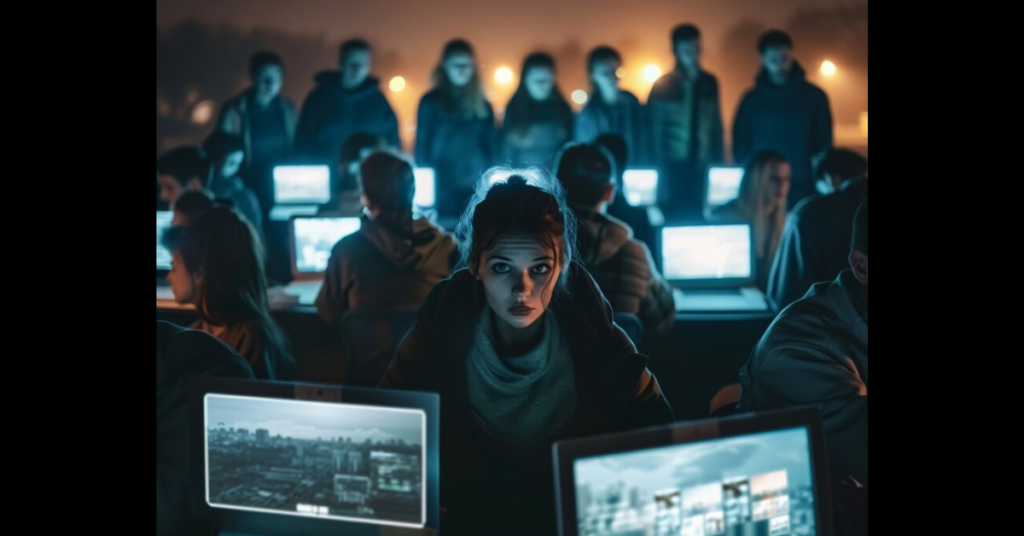In the digital age, access to entertainment has become easier than ever, thanks to streaming platforms. However, alongside legitimate services, there exists a shadowy realm of websites like Crackstream, which offer unauthorized access to live sports and other copyrighted content. This article explores Crackstream, its impact, legality, and the broader implications it raises.
What is Crackstream?
Crackstream is a website notorious for illegally streaming sports events, including boxing matches, soccer games, and more. It operates outside the boundaries of copyright law, offering users free access to content that is typically paid for through official channels.
The Mechanics of Crackstream
Crackstream operates through a decentralized network of servers and domains, often changing its web address to evade legal actions. It attracts users by promising high-definition streams of popular sporting events, drawing in a global audience seeking free access to live matches.
Legal and Ethical Issues
Copyright Infringement
The primary issue surrounding Crackstream is copyright infringement. By streaming content without permission from copyright holders, the platform violates intellectual property rights, causing significant financial losses to broadcasters, sports leagues, and content creators.
Jurisdictional Challenges
Crackstream’s elusive nature poses challenges for legal authorities worldwide. Operating across multiple jurisdictions and often hosted in countries with lax enforcement of copyright laws, it remains difficult to shut down permanently.
Ethical Considerations
Beyond legality, Crackstream raises ethical questions. Users benefit from free access to content but at the expense of creators and broadcasters who invest in producing and distributing that content.
Impact on Sports and Broadcasting Industry
Financial Impact
The sports and broadcasting industries suffer substantial financial losses due to illegal streaming. Decreased revenue from broadcasting rights affects the ability of leagues and teams to operate, potentially impacting player salaries, infrastructure development, and grassroots sports initiatives.
Disruption of Business Models
Crackstream disrupts the traditional business models of broadcasters and streaming platforms that pay substantial sums for exclusive rights. This, in turn, could lead to reduced investment in new technologies and innovations in sports broadcasting.
Responses and Countermeasures
Legal Actions
Various legal actions have been taken against Crackstream operators, including domain seizures, lawsuits, and criminal prosecutions. However, the transient nature of the internet makes it challenging to completely eradicate such platforms.
Technological Measures
Broadcasters and content creators employ technological measures such as digital rights management (DRM) and watermarking to track and prevent unauthorized distribution of their content. However, these measures are not foolproof and can sometimes inconvenience legitimate users.
Global Perspectives
International Cooperation
Addressing the issue of Crackstream requires international cooperation among governments, law enforcement agencies, and internet service providers to enforce copyright laws effectively across borders.
Cultural and Socioeconomic Factors
In some regions, the popularity of platforms like Crackstream reflects socioeconomic factors such as access to affordable entertainment options. Understanding these dynamics is crucial in devising sustainable solutions.
Future Outlook
Evolving Technologies
Advancements in streaming technologies, including blockchain-based solutions and enhanced encryption, may offer more secure and efficient ways to distribute content while protecting intellectual property rights.
Regulatory Changes
Continued debates over copyright reform and digital rights may lead to regulatory changes aimed at curbing illegal streaming activities and protecting the interests of content creators and broadcasters.
Conclusion
Crackstream exemplifies the ongoing struggle between accessibility, legality, and ethical considerations in the digital age. While it provides users with free access to live sports, its operations undermine the foundations of copyright law and disrupt established business models. Addressing the issue requires a multifaceted approach involving legal, technological, and societal considerations to protect intellectual property rights while ensuring fair access to entertainment globally.
For More Stories Visit the Blog REACTIVEM.COM







